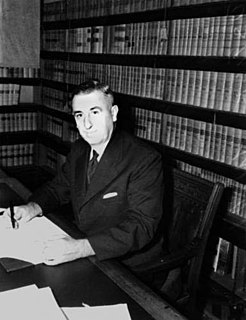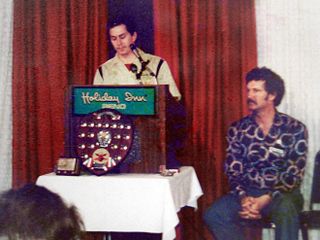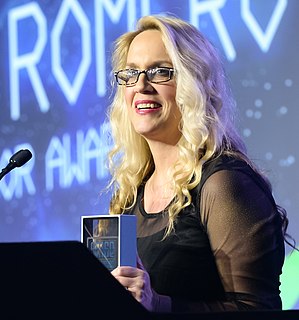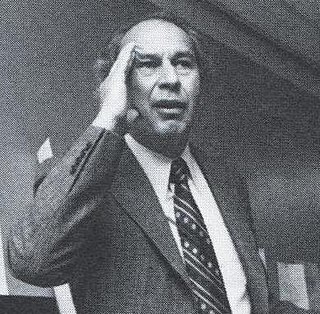A Quote by William Webb
Tattooing is historical, cultural and a great form of art but it should always be safe for both the client and the tattoo practitioner.
Related Quotes
You put a tattoo on yourself with the knowledge that this body is yours to have and enjoy while you're here. You have fun with it, and nobody else can control (supposedly) what you do with it. That's why tattooing is such a big thing in prison: it's an expression of freedom—one of the only expressions of freedom there. They can lock you down, control everything, but 'I've got my mind, and I can tattoo my body—alter it my way as an act of personal will.'
I always look at magazines and wind up standing there like, "Whose house looks like this? Who lives this way?" I never can understand what the point of view is. The only thing you can really do, being a decorator, is put an educated client towards what it is they don't know about. The dialogue between a client and a decorator should be more about, "Let me help you get to the point where you can find a comfortable place to live and be exposed to things," the way that an art consultant exposes a person who wants to buy art to art, instead of inflicting good taste upon them.
Organizations are accumulations of historical debris. They are not consciously thought. So when you ask the Education Ministry 'What's your core function and who's your client?' they laugh at you. When I say that the client is the Afghan child - and the Ministry is an instrument, not the goal - it's greeted with shock. It's a new idea.
The great cognitive shift is an expansion of consciousness from the perspectival form contained in the lives of particular creatures to an objective, world-encompassing form that exists both individually and intersubjectively. It was originally a biological evolutionary process, and in our species it has become a collective cultural process as well. Each of our lives is a part of the lengthy process of the universe gradually waking up and becoming aware of itself.
I'm especially interested in what I call practitioner criticism, which is when people who practice an art form start writing about it on blogs. I think that's an immensely important development. I want to see much, much more of that. People who make music who are verbally articulate. And not all musicians are verbally articulate. But those who are should be encouraged to write about what they do and their perception of what other people do. It makes the discourse smarter.
The condition of the theater is always an accurate measure of the cultural health of a nation. A play always exists in the present tense (if it is a valuable one), and its music -- its special noise -- is always contemporary. The most valuable function of the theater as an art form is to tell us who we are, and the health of the theater is determined by how much of that we want to know.
































